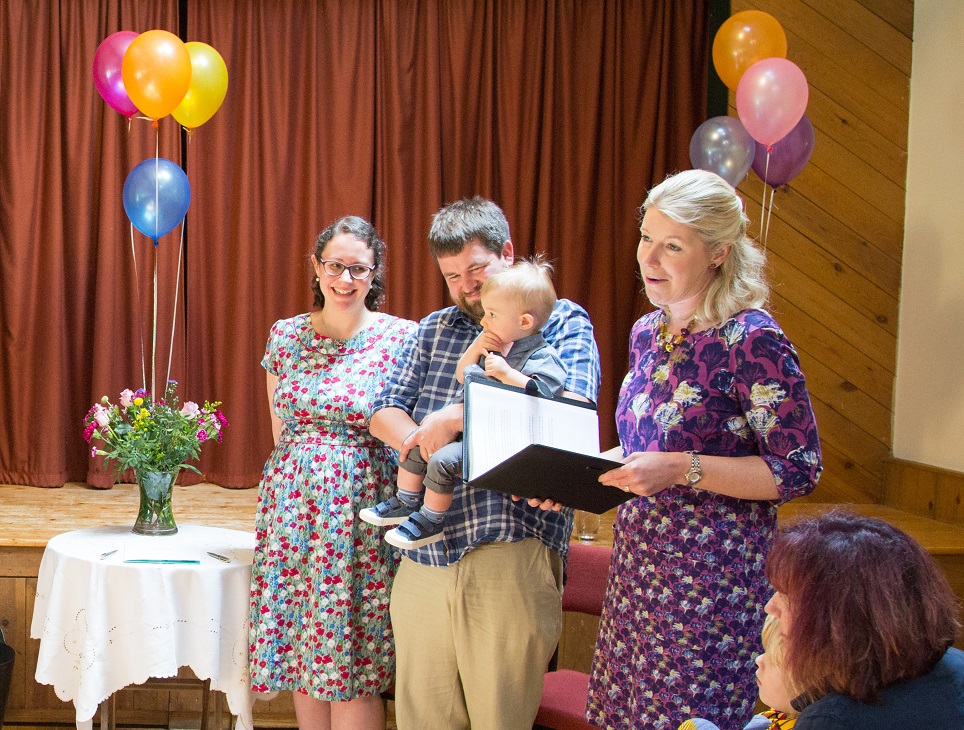
Award-winning humanist celebrant Jane Blackman explains what happens at a humanist naming ceremony.
Why hold a naming ceremony?
The arrival of a new baby, adopted child, or stepchild into your family is not only a joyful and positive event, it’s also a life-changing moment and a gathering and celebration to mark it feels wholly fitting.
By holding a naming ceremony, you are not only introducing a new person by name, you’re also expressing gratitude for their presence, marking your commitment to their welfare and happiness, and welcoming them as a precious, significant person in your life and the lives of your family and friends.
Why have a celebrant?
Whilst it’s possible to host your own naming ceremony, when you work with a Humanist Ceremonies celebrant, you’re working with someone with training, skills, and experience in creating inclusive, family-friendly ceremonies. Having a professional celebrant leading the ceremony frees you up to mingle with guests and relax and enjoy the day.
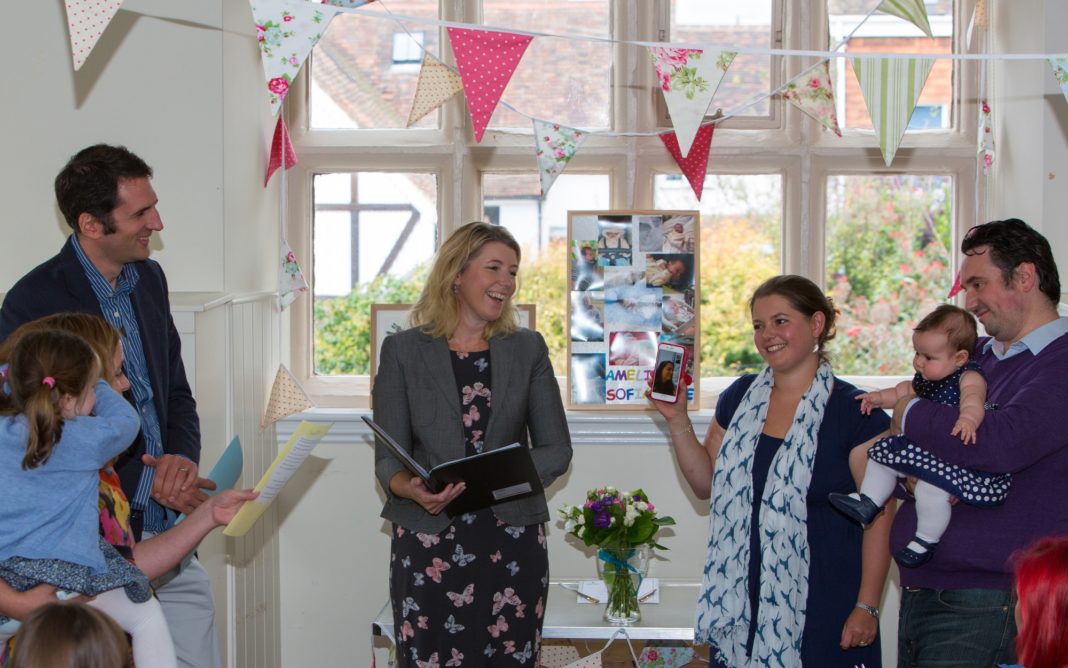
Humanist celebrants create and lead bespoke ceremonies for newborn babies, toddlers, and older children – for one child or two or more siblings, or related children (or friends). We conduct naming ceremonies for families, including brothers and sisters, and also cousins. We’re flexible and can accommodate your wishes.
Where can you hold a naming ceremony?
A humanist naming ceremony can take place anywhere – the family home or garden, community centre, village hall, a hotel, or café. The possibilities are endless!
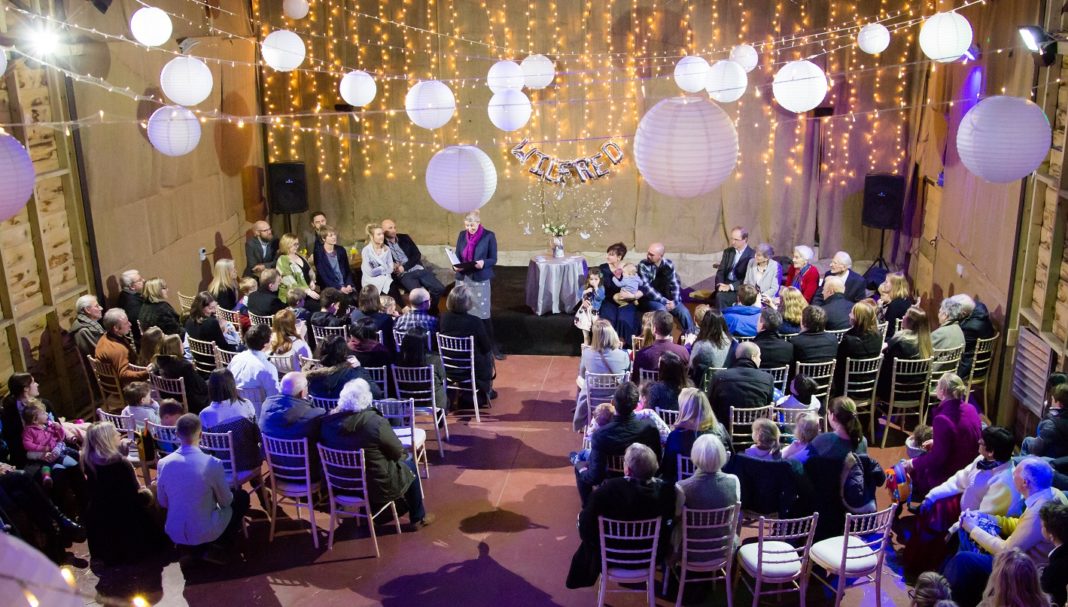
What happens at a humanist naming ceremony?
Working together, you and your celebrant can plan and create the ceremony that is absolutely right for your family and your situation. Some families want a short, formal, structured event while others want a day filled with fun, music, and activities that guests can get involved in. It’s your day, your way and each ceremony is unique. It’s entirely up to you how the ceremony is structured and what it includes. Your Humanist Ceremonies celebrant will have lots of ideas and suggestions.
Parental promises
If you would like to speak at the ceremony, you might like to choose words that you, as parents want to express regarding your hopes for and promises to your child.
Music
Music can add so much to any ceremony: a naming ceremony can be greatly enhanced with the addition of favourite songs or instrumental pieces which can create atmosphere and a sense of occasion.
A singalong can be great fun too and a wonderful, uplifting way of including all in attendance, creating a sense of community and joy.
Poetry and readings
Selecting poetry, extracts from favourite stories, or including quotes and sayings can add variety, interest and meaning to a naming ceremony.
By including readings in the ceremony, you are creating opportunities to involve family members or close friends, including someone important to the child to take on this privilege with the inclusion of fitting, thought-provoking words that enhance the occasion.
Involving other children
Siblings, friends, or family members can be involved in the ceremony in a variety of ways, such as presenting gifts that have symbolism for example, wood for warmth, coins for wealth, food for health, etc.
Also, we’ve found that it works well to have a space for children to produce some special artwork or cards to welcome your child into the family.
Can we have godparents at a naming ceremony?
Strictly speaking, the role of a godparent is to be a religious guide to the child and train the child in the practice of the Christian faith – and this is clearly not applicable to families who have chosen a non-religious naming ceremony led by a humanist celebrant. However, traditionally, choosing godparents today is often more a reflection of who you would like to play an ongoing role in your child’s life – and for that reason, humanist naming ceremonies will often include ‘guideparents’.
If you wish to choose guideparents to act as supporting adults with a special interest in and a commitment to your child throughout their life, you can invite them to make commitments or promises as part of the ceremony. You can have as many guideparents – mentors, supporting friends, ‘odd’ parents – as you like. We have known some children to have as many as ten!
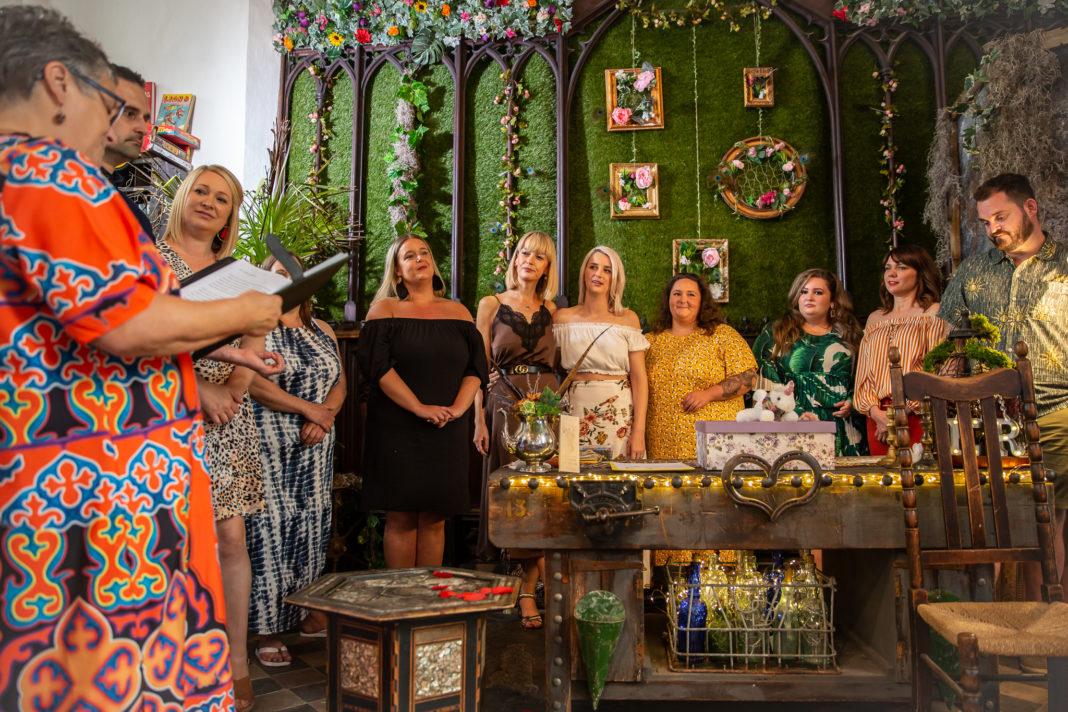
Naming ceremonies for older children
In the case of older children – adopted children or step-children taking on a new surname, the ceremony can focus more on expressing love for them, celebrating their unique character and personality, and acknowledging the important part they play in your family.
A certificate-signing
Like christenings, naming ceremonies have no legal status. However, as part of the ceremony, you can choose to include the signing of a naming certificate. This provides a short pause in the ceremony and a lovely photo opportunity during which the parents and supporting adults sign a certificate witnessed by all in attendance, marking the occasion and the adults’ commitments to the child. The certificate can be kept by the family as a memento of the event.
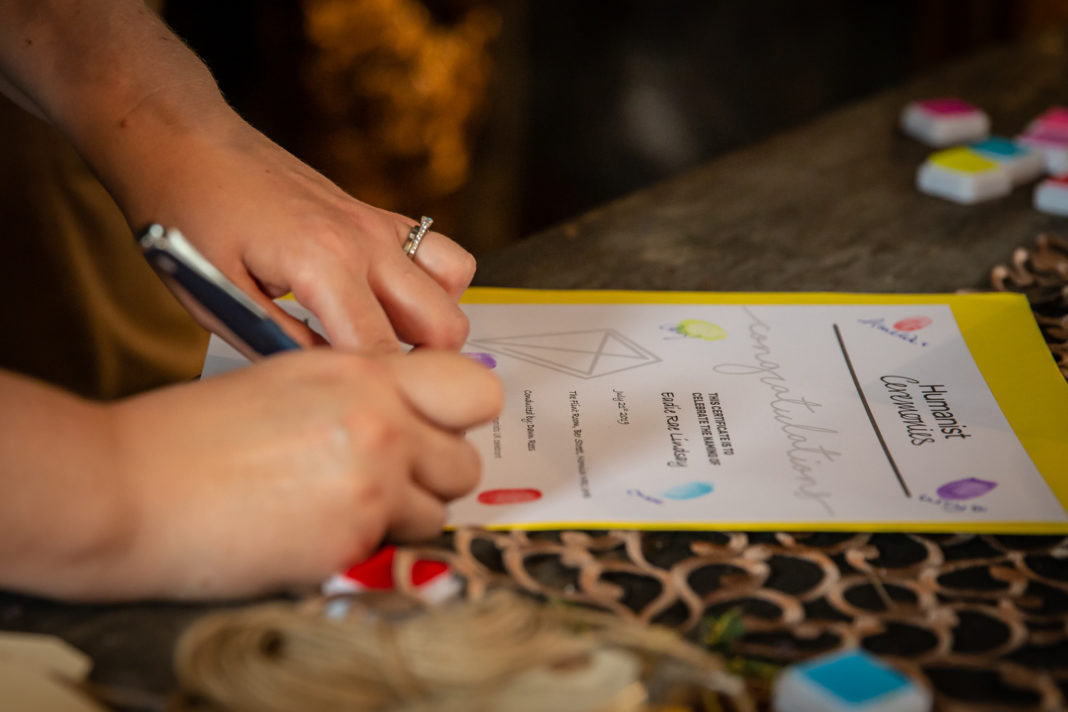
Making it bespoke with symbolic acts
There are many symbolic acts you can incorporate into a naming ceremony, such as creating a time capsule or memory box, planting a tree, or conducting a sand-blending ceremony.
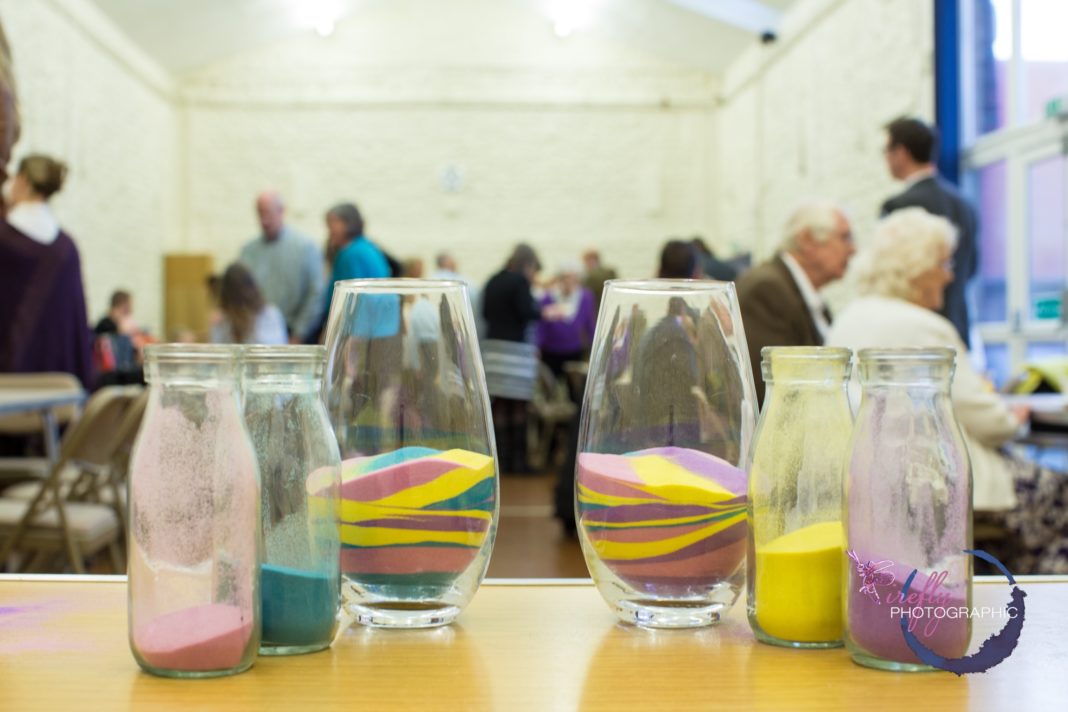
The script
Your Humanist Ceremonies celebrant will provide you with a presentation copy of the ceremony script in a decorative folder as a lovely reminder of the day.
Next steps
If this all sounds of interest and the right kind of celebration for your family, you can use our ‘Find a celebrant’ map to find a Humanist Ceremonies naming celebrant in your area. Your local celebrant will be happy to talk with you about your ideas, the possibilities for the celebration you are planning, and provide you with a quote.
If you’d like to discuss a naming ceremony with me, you can email me at jblackmancelebrant@gmail.com.
Let the party commence!





